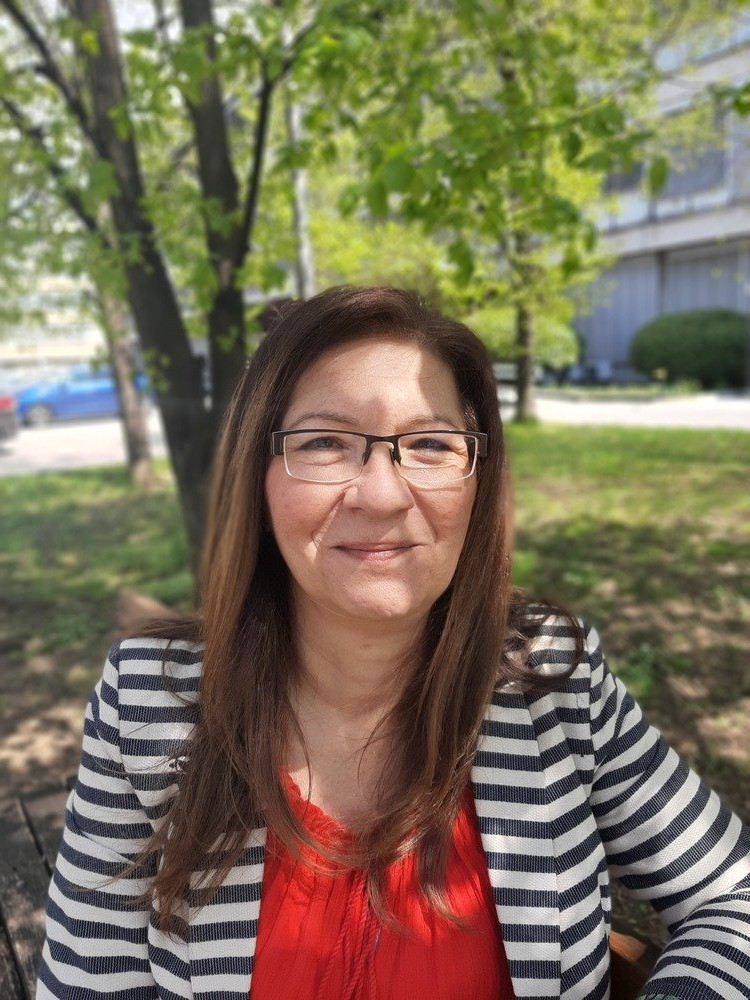Keynote speakers
Omer Van den Bergh: Bodily symptoms and physiological dysfunction: An experimental inquiry about their relationship
Bodily symptoms are the main reason for consultations in primary and secondary care. However, in one third to half of these consultations, bodily symptoms cannot be linked to objectifiable disease. Bodily symptoms are also highly prevalent in emotional disorders and they are the core of somatic symptom (DSM-V) and bodily distress disorder (ICD-11). This talk will take you on an experimental journey in which somatic sensations are induced and their correspondence with self-reported symptoms is systematically investigated in order to reveal when and why bodily symptoms may or may not be closely related to input from somatic dysfunction. This journey prompts a new model to understand the (often loose) relationship between somatic symptoms and bodily dysfunction. In this model, the experience of a bodily symptom emerges as a result of dynamic constructive perceptual process balancing afferent peripheral input and perceptual hypotheses generated by the brain. Personal characteristics, contextual variables and their interaction may modify this balance and cause different degrees of dissociations between bodily symptoms and physiological dysfunction. In the extreme case, bodily symptoms are completely uncoupled from somatic input. In this talk, we will focus on a mechanistic analysis to explain this condition. Our view suggests that current clinical interventions in somatization should broaden their scope to bring back perception into symptom perception. In particular, we will argue that interoceptive differentiation training may be an important target for therapeutic intervention.
 Omer Van den Bergh is emeritus professor Health Psychology at the University of Leuven (2018). He obtained a Ph.D. in Psychology at the Laboratory of Experimental Psychology – University of Leuven (1986), followed a research training at the NIMH Center for the Study of Attention and Emotion (Prof. Dr. P.J. Lang) at the University of Florida (1986) and a postgraduate training in cognitive behavior therapy. He is supervisor of the Flemish Association for Behavior therapy. He was visiting professor at Baguio (the Philippines), Lima (Peru) and Rome (Italy). He has currently a research affiliation to the Institute of Cognitive Sciences and Technologies (ISTC), a research institute of the National Research Council (CNR) of Italy and is a Mercator Fellow at the DFG (German National Research Foundation). Omer Van den Bergh is an expert in the broad area of the relationship between health and behavior. Specific key words in his work are symptom perception and (respiratory) psychophysiology in response to stress and aversive somatic experiences. His research involves both normal subjects in laboratory experiments, clinical studies on psychosomatic and pulmonary patients in the university hospital, and field studies on subjective health symptoms. He published over 300 papers and chapters in international journals and books. See more on http://www.kuleuven.be/wieiswie/nl/person/00005032
Omer Van den Bergh is emeritus professor Health Psychology at the University of Leuven (2018). He obtained a Ph.D. in Psychology at the Laboratory of Experimental Psychology – University of Leuven (1986), followed a research training at the NIMH Center for the Study of Attention and Emotion (Prof. Dr. P.J. Lang) at the University of Florida (1986) and a postgraduate training in cognitive behavior therapy. He is supervisor of the Flemish Association for Behavior therapy. He was visiting professor at Baguio (the Philippines), Lima (Peru) and Rome (Italy). He has currently a research affiliation to the Institute of Cognitive Sciences and Technologies (ISTC), a research institute of the National Research Council (CNR) of Italy and is a Mercator Fellow at the DFG (German National Research Foundation). Omer Van den Bergh is an expert in the broad area of the relationship between health and behavior. Specific key words in his work are symptom perception and (respiratory) psychophysiology in response to stress and aversive somatic experiences. His research involves both normal subjects in laboratory experiments, clinical studies on psychosomatic and pulmonary patients in the university hospital, and field studies on subjective health symptoms. He published over 300 papers and chapters in international journals and books. See more on http://www.kuleuven.be/wieiswie/nl/person/00005032
Cyberchondria refers to an excessive or repeated online health information seeking that is associated with increasing levels of anxiety. It has significant public health implications because of the associated distress or functional impairment and effects on health behaviours. A model of cyberchondria during the COVID-19 pandemic has been proposed. It includes several components: heightened perception of threat and fear of a newly identified and poorly understood disease; difficulty in coping with uncertainty associated with the pandemic; deficiency in authoritative and trustworthy sources of relevant health information; difficulty in coping with abundance of information that is often confusing, conflicting, unverified and constantly updated, along with a decreased ability to filter out unnecessary information; and inability of excessive online health information seeking to provide the necessary information and deliver reassurance. These factors contribute to the maintenance of cyberchondria, which should therefore be addressed by targeting a heightened perception of threat, improving management of uncertainty and online health information, promoting an ability to critically appraise the results of online health searches and ultimately improving online health information literacy.
 Vladan Starčević is Associate Professor of Psychiatry at the University of Sydney. He completed his medical studies and training in psychiatry in Belgrade and has lived in Australia since 2000. The main areas of his professional and research interest include anxiety and obsessive-compulsive and related disorders and psychopathology associated with the use of digital technologies. Professor Starčević has authored or co-authored more than 270 articles in peer-reviewed journals and over 60 book chapters. He is the sole author of 4 books and has co-edited additional 5 books.
Vladan Starčević is Associate Professor of Psychiatry at the University of Sydney. He completed his medical studies and training in psychiatry in Belgrade and has lived in Australia since 2000. The main areas of his professional and research interest include anxiety and obsessive-compulsive and related disorders and psychopathology associated with the use of digital technologies. Professor Starčević has authored or co-authored more than 270 articles in peer-reviewed journals and over 60 book chapters. He is the sole author of 4 books and has co-edited additional 5 books.
In this lecture it will be discussed on methodological issues that lend themselves, when properly utilized, to serve the ultimate social justice causes of any research program. I will cover design, measurement and analysis issues that need to come together to optimize the findings of any research endeavor, especially related to prevention and intervention research. Specifically, I will discuss the merits of item parcels, effects-coded scaling method, modern missing data treatments, use of rescaling constructs, and principled verification as an analytic approach to modern modeling. I’ll present a published example that utilizes all of the topics I’ll review. If research is to inform policy and practice, it must be done with the utmost best-practice to ensure social justice is served.
Todd D. Little, Ph.D. is a Professor of Educational Psychology at Texas Tech University (TTU). Little is internationally recognized for his quantitative work on various aspects of statistics and methodology (e.g., applied SEM, modeling individual, group, and developmental differences, missing data estimation, measurement) as well as his substantive developmental research (e.g., action-control processes and motivation, coping, and self-regulation). He founded, organizes, and teaches in the internationally renowned ‘Stats Camps' and has given over 150 workshops and talks on methodology topics around the world. He published and edited multiple books related to methodology, including the Oxford Handbook of Quantitative Methods.
During the past 20 years of researching intimate or partner relationships, I have gained answers to many questions most of us consider such as what makes a good relationship and how to achieve and maintain it. What are the key characteristics of a good partner? How do I affect the relationship I have? What can my partner and I do to make our relationships better and more satisfying? How to maintain a good relationship despite the daily hassles and difficulties we are exposed to in modern society? What causes breakups and how to deal with them more easily? In this presentation, I will systematically present the many insights my colleagues and I gained by researching partner characteristics, relationship dynamics as well as characteristics of the context in which relationships take place, and try to provide some new insights into determinants of quality love relationships.
 Željka Kamenov is a Full professor at the Department of Psychology, Faculty of Humanities and Social Sciences, University of Zagreb, where she teaches courses in social psychology, close relationships, communication skills and research methodology. Her research interests are focused on social cognition, close relationships, gender (in)equality and stigmatization of marginalized groups. She has led a number of domestic and international research projects, including "The role of socio-cognitive processes in self-regulation and interpersonal relations", "Perception, experience and attitudes about gender discrimination in the Republic of Croatia", "National and European identity", "Gender, generational and cultural differences in the expression of love between spouses "," Minority stress and mental health of homosexual and bisexual people in Croatia" and "Characteristics of partners and their mutual interactions that contribute to maintaining quality partnerships in the context of destabilizing challenges in modern society". She is one of the co-creators and collaborators on the current project "How are we? Life in Croatia at the time of the coronavirus". She has published ten books, several book chapters and over 50 scientific papers, and is the co-author of a new psychology textbook for high schoolers. She has given numerous invited lectures and submitted more than 150 presentations at international and domestic scientific and professional conferences. She is the winner of the state "Ivan Filipović Award" for her contribution to higher education in the Republic of Croatia.
Željka Kamenov is a Full professor at the Department of Psychology, Faculty of Humanities and Social Sciences, University of Zagreb, where she teaches courses in social psychology, close relationships, communication skills and research methodology. Her research interests are focused on social cognition, close relationships, gender (in)equality and stigmatization of marginalized groups. She has led a number of domestic and international research projects, including "The role of socio-cognitive processes in self-regulation and interpersonal relations", "Perception, experience and attitudes about gender discrimination in the Republic of Croatia", "National and European identity", "Gender, generational and cultural differences in the expression of love between spouses "," Minority stress and mental health of homosexual and bisexual people in Croatia" and "Characteristics of partners and their mutual interactions that contribute to maintaining quality partnerships in the context of destabilizing challenges in modern society". She is one of the co-creators and collaborators on the current project "How are we? Life in Croatia at the time of the coronavirus". She has published ten books, several book chapters and over 50 scientific papers, and is the co-author of a new psychology textbook for high schoolers. She has given numerous invited lectures and submitted more than 150 presentations at international and domestic scientific and professional conferences. She is the winner of the state "Ivan Filipović Award" for her contribution to higher education in the Republic of Croatia.
